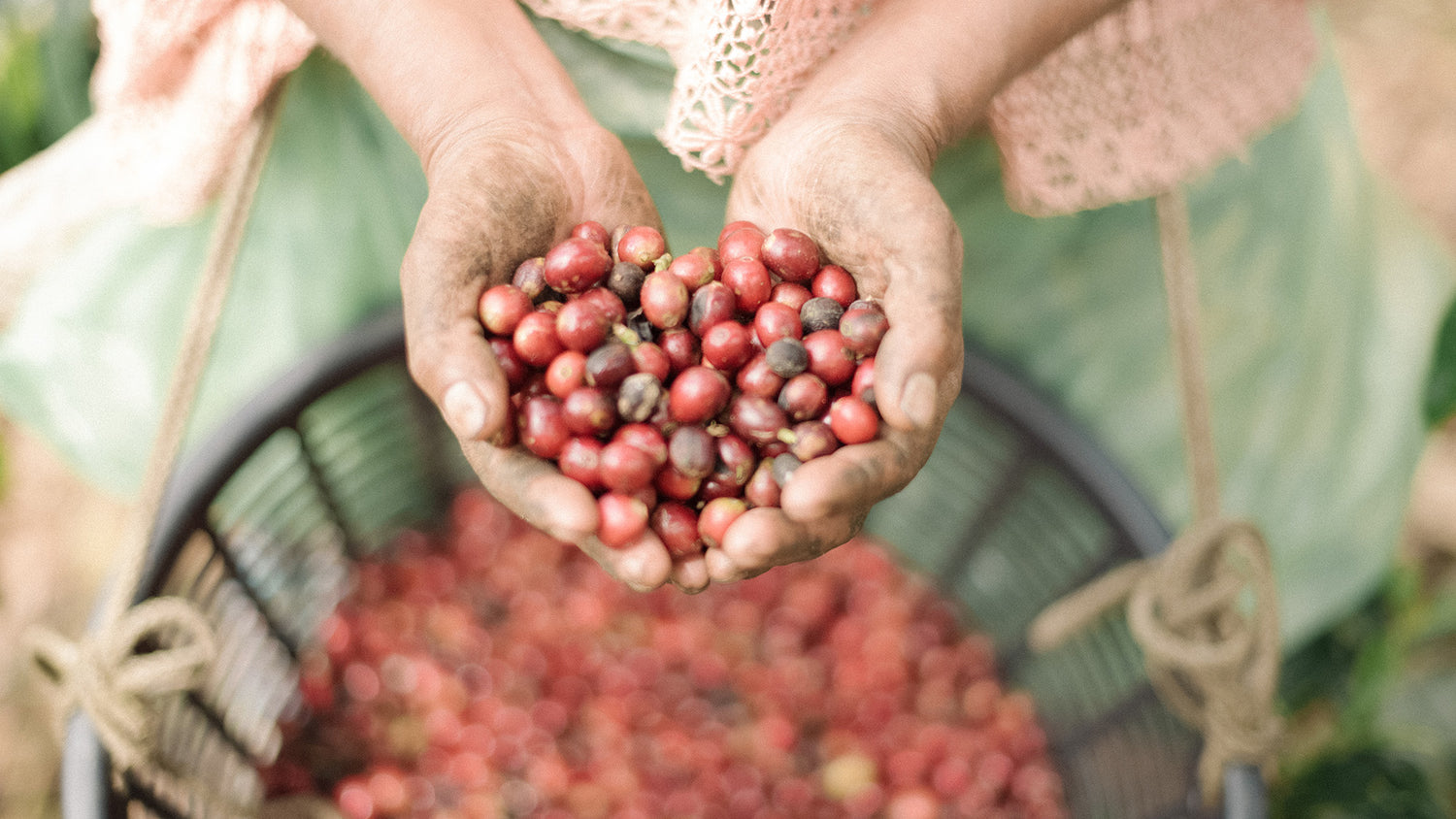Wildkaffee – quality, transparency and craftsmanship
For over 13 years now, the Wildkaffee brand has stood for sustainable sourcing, artisanal roasting, and uncompromising quality. The Garmisch-Partenkirchen-based roastery sources its green coffee directly from partners around the globe – with a complete focus on fairness, environmental awareness, and taste. On regular trips to our producers in the countries of origin, we not only get to know the producers of the green coffee personally, but can also closely examine the working conditions on site. In recent years, this has led to long-term collaborations and even friendships. We have also contributed to optimizing the quality of the coffee produced. Through increased investments (fair prices for coffee, etc.), the farmers have more budget to support their families and improve production.
The philosophy: Direct, honest, sustainable
Wildkaffee relies on direct trade – that is, trading directly with coffee farmers. This eliminates middlemen, which not only means fair prices for producers but also maximum traceability and quality assurance for consumers. We also pursue a holistically sustainable approach – from organic bean cultivation and short supply chains to carbon-neutral packaging. In our roastery, we reuse any packaging waste: Every cardboard box, every filling material and the leftovers from coffee roasting find a use in our company. The silver skins (which fall off the beans during the roasting process) are Biowaste recycling plant in Garmisch-Partenkirchen from which biogas and energy are produced.
No organic seal
We're often asked why we don't sell organic coffee, Demeter-certified coffee, or Fairtrade. The answer is as simple as it is complicated: it costs too much. For us as a roaster, the certification costs (which arise every year) would be entirely manageable, but unfortunately, everyone else involved in the production of the green coffee must also be certified. And for some small coffee farmers, the costs of such certifications are quite high and often simply unaffordable. Nevertheless, we ensure that the coffees we produce are grown biodynamically, and through direct trade, we can pay much higher prices than would be possible with Fairtrade.
Social projects in coffee

We also actively support local coffee farmers through our social projects, such as the Coffee School Project in El Salvador . A few years ago, El Salvador was known for its unique specialty coffee. Crime, corruption, low prices, and a coffee rust epidemic brought the coffee market in El Salvador to a standstill. We purchased and rebuilt an abandoned coffee farm in the Buenos Aires region, directly adjacent to the Santa Ana volcano. We're using this farm to offer local coffee farmers new prospects. The project offers farmers comprehensive support with new techniques, high-yield cultivation, processing, and assistance with marketing the harvest.
We have also created a shared processing facility to reduce costs for smaller farmers. Together with the entire farming community, our social coffee project ensures that new varieties are cultivated and improved. This expands the farmers' portfolio, giving them a powerful advantage in the thriving coffee market.
Artisanal roasting for maximum flavor
The quality of our premium coffee doesn't end with the purchase of premium coffees. At our roastery in Garmisch-Partenkirchen, we process the beans gently in drum roasters – at low temperatures and over extended periods. This allows for the precise development of the aromas and ensures that each bean can develop its full potential.
The artisan roasting process takes ten to 20 minutes and operates at temperatures of around 220 degrees Celsius. After roasting, the beans are placed in a special sieve, where they are cooled to the desired temperature within a minute. This step ensures that the desired roasting level is actually achieved, because even with artisanal coffee roasting, the beans could otherwise "overcook"—that is, continue to roast.
Whether fruity filter coffee or strong espresso – we at Wildkaffee know how to create an individual taste for each bean through careful roasting profiles.
Variety in the product range
Wildkaffee's portfolio ranges from classic house blends to seasonal microlots – single-origin coffees with a distinctive character. In addition to whole beans and ground coffee, we also offer cold brew from our partner 25GRAMS and barista accessories. You'll find everything your coffee heart desires: medium roasts for all preparation methods, various espresso blends for portafilters or stovetop brews (or your favorite brew), as well as light roasted specialty coffees for filter coffee. We've also created something truly special with the Brewers Cup Series : you can purchase microlots that are usually only used by professionals at competitions. In other words, the crème de la crème of specialty coffees.

Transparency and education
Another key concern of ours is to inspire people about coffee and impart knowledge. In our blog, on our social media accounts, and at on-site tastings, we regularly share coffee knowledge at eye level – accessible, honest, and well-founded. From the production of green coffee to transportation, roasting, and coffee preparation, you'll learn everything you need to know.
Conclusion
Of course, there are many good roasters out there. It's important to us that you have the best possible coffee in your cup. And for us, that means knowing where the coffee comes from and who grew it, as well as knowing that it was paid more than fairly and then gently roasted by us. From the farm to the cup, we value the highest quality and fairness at every step. So that in the end, you can say: "Yes, this is a truly great coffee."
And if social media and our blog haven't answered all your questions, you can also email us, call us, or start a chat on our website. We're happy to help and answer any questions you may have.




